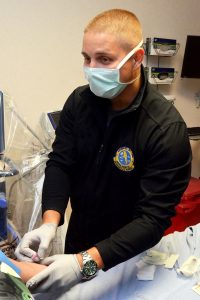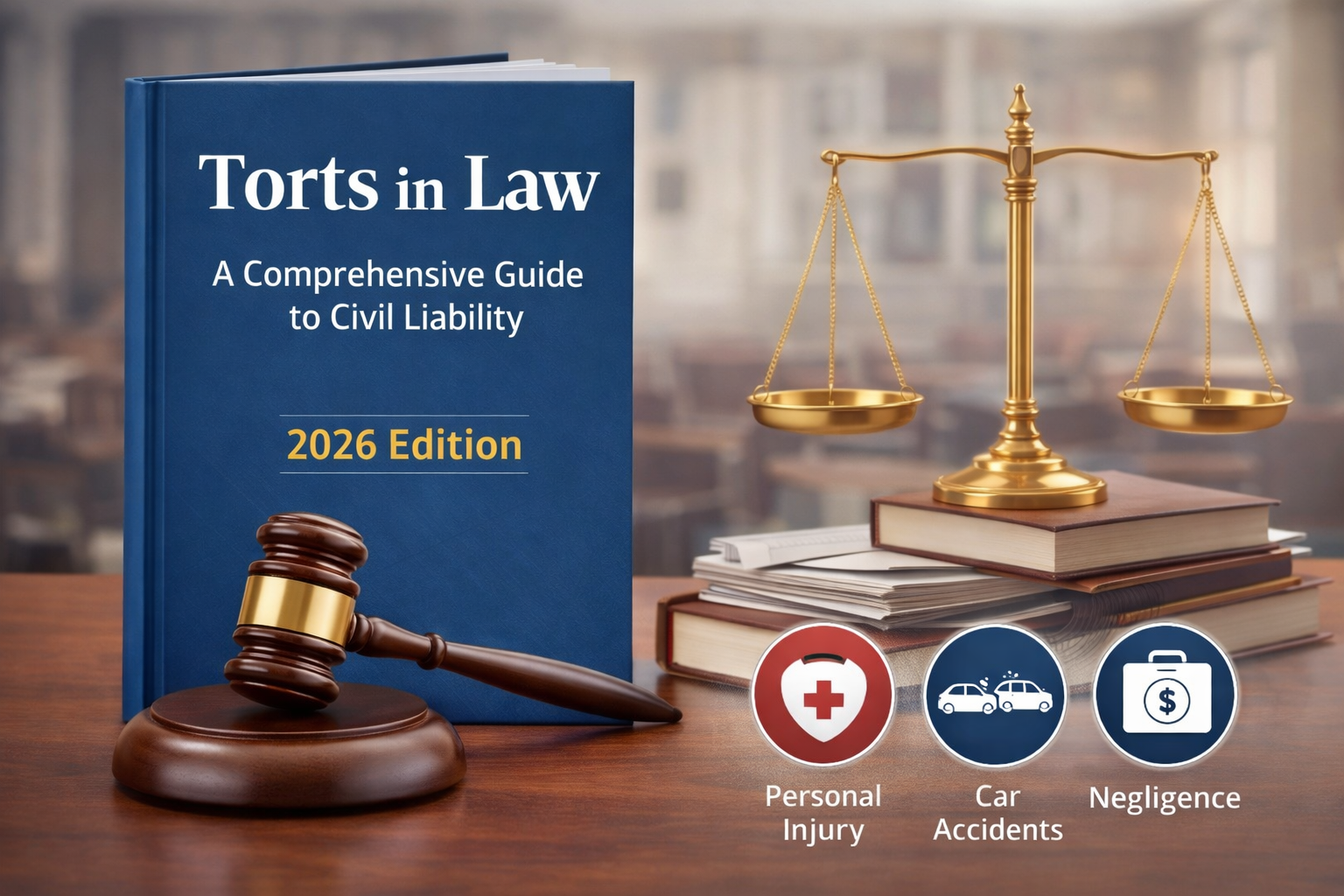Torts in law form the foundation of civil justice, holding individuals and organizations accountable for harm caused by negligence or intentional acts. This comprehensive 2026 guide explores the types of torts, elements of liability, and key legal principles that protect victims and ensure fairness within the justice system.
Continue readingFlorida Parents’ Bill of Rights Impact on Healthcare Providers
It is well settled law that a minor cannot consent to health care services and treatment unless an exception applies. So what is the impact of the latest legislative changes in the form of the “Parents’ Bill of Rights”? This new law, Florida Statutes Chapter 1014, should not substantially change the way health care providers interact with minors. It may however provide a more unified approach to parents’ rights to both making health care decisions and obtain access to the medical records of their minor children.
Below is a summary of the new Parents’ Bill of Rights law and the potential considerations and challenges for health care providers.
SUMMARY OF THE NEW LAW
The Parents’ Bill of Rights essentially prohibits infringement upon the fundamental rights of parents to direct the upbringing, education, health care, and mental health of a minor child. The legislature believes that important information relating to a minor child should not be withheld, either inadvertently or purposefully, from his/her parent. Under this new law, parental rights include, but are not limited to:Continue reading
IV Therapy Clinics: Take Note of IV Supervision Requirements
As IV therapy clinics become more and more popular, the question to follow is, who can place the IV line and under what supervision? You would expect that first responders like Emergency Medical Technicians (EMT) would be able to start lifesaving IV lines on their own since they are the life support in between an incident and the emergency room. Contrary to what one might think is an “appropriate” ability or function of emergency personnel, under Florida law, EMTs are actually not permitted to place their IV lines on their own outside of an emergency situation. While there might be some very narrow exceptions, the general rule is clear in its prohibition.Continue reading
Can Paramedics Administer IVs at Doctor’s Offices, Clinics, or MedSpas?
 There has been a lot of confusion lately as to whether Paramedics can administer IVs at doctors’ offices, clinics or MedSpas. While these professionals are trained to administer IVs during emergency transport, they are not allowed to administer IVs in most other situations.
There has been a lot of confusion lately as to whether Paramedics can administer IVs at doctors’ offices, clinics or MedSpas. While these professionals are trained to administer IVs during emergency transport, they are not allowed to administer IVs in most other situations.
The statutes and rules pertaining to paramedics and scope of practice fall under Chapter 401, Medical Telecommunications and Transportation, Florida Statutes, and Chapter 64J-1, Emergency Medical Services, Florida Administrative Code.
Based on definitions and the text of the statutes and rules, although a paramedic is trained to administer IVs, they can only do so during the course of emergency services and transportation and at public health care programs. Further, a paramedic’s services must be rendered under a medical director’s supervision, as the term medical director is defined under Section 401.23, Florida Statues. Under this statute, a medical director “is a physician employed or contracted by a “licensee” and who provides medical supervision, including appropriate quality assurance but not including administrative and managerial functions, for daily operations and training pursuant to this part.” Section 401.23(15). Pursuant to statutes, a “licensee” means any basic life support service, advanced life support service, or air ambulance service licensed pursuant to this part.” Section 401.023(13).Continue reading
Gov. DeSantis Vetoes No-fault Repeal Legislation
Today marks a big win for Chiropractors, the Florida Chiropractic Association, and other medical providers that treat patients as a result of a motor vehicle accident. Legislation was presented earlier this year which would have completely changed how the personal injury protection (“PIP”) industry would impact medical providers. The legislation is known as Senate Bill 54 (“SB 54”).
SB 54 was sought to end the requirement that Floridians purchase $10,000 in PIP coverage and would instead require mandatory bodily injury (“MBI”) coverage that would pay out up to $25,000 for a crash-related injury or death. This would have meant that for each case before a provider would be paid by the patient’s car insurance coverage, fault would have to be determined through litigation which would have increased the time it would have taken providers to be paid. In today’s landscape providers are able to bill the patient’s PIP coverage for the initial $10,000, and be paid 80% of the billed charges immediately, and if this law would have passed each treating provider would have had to either bill the patient’s health insurance, or treat patients on letters of protection.
In Governor DeSantis’s veto letter he wrote, “While the PIP system has flaws and Florida law regarding bad faith is deficient SB 54 does not adequately address the current issues facing Florida drivers and may have unintended consequences that would negatively impact both the market and consumers.”
Due to the potential repercussions this legislation would have had on an entire industry it is very important for all medical providers today to continue and evolve with the changing landscape. Although providers can take a breather today, because the battle is now over, they must begin to think about how their practices would have been impacted if they could have only billed patient’s health insurance or treated patients on letters of protection. Many providers that I have spoken with were not sure what they would have done, and one piece of advice I always give is that now is the time to start thinking ahead to the future. Meaning, if this law were to present itself again you all have to ask yourself would your practice be able to survive not being paid for months or years? Providers need to start considering how they can better evolve to provide better care to their patients while still being able to survive in the event PIP is repealed in the future.
A Legislative “Vaccine” for Claims Against Florida Healthcare Providers
On March 29, 2021, Florida Governor Ron DeSantis signed the “Civil Liability for Damages Related to COVID-19 Act” into law. The Act was designed to shield businesses from COVID-19 liability claims, and includes a specific section dedicated to protecting healthcare providers. While the protections for healthcare providers are not as robust as those granted to other businesses, the immunity provided by the law (Florida Statutes s768.381) is significant.
The protections apply to virtually all Florida healthcare providers, regardless of whether they are individuals, agencies, or facilities; and cover all “COVID-19 related claims.” The types of claims covered are those arising from:Continue reading
Medical Spa Industry Is Booming But is Regulation Keeping Up?
 Medical Spas nationwide, but specifically in Florida, have been opening up at a staggering pace. For many reasons, including new services, technological advances, and lax regulations, the opportunities for medical spa businesses are endless.
Medical Spas nationwide, but specifically in Florida, have been opening up at a staggering pace. For many reasons, including new services, technological advances, and lax regulations, the opportunities for medical spa businesses are endless.
In 2010, there were about 1,600 medspas operating in the United States generating about $1.1 billion in revenue (about $700,000 per medspa on average). By 2018, these numbers increased to over 5,000 medspas generating about $7 billion-$8 billion in revenue (about $1.4 million per medspa on average). The number is expected to grow to over 10,000 medspas by 2023 with about $18 billion-$20.7 billion in revenue.
While medical spa owners have taken advantage of these opportunities, state authorities have yet to keep up. The medical spa industry is largely unregulated, whether that be due to the nature of the services provided, or the explosive growth in this alternative type of medical clinic. On top of that, there’s been a expansion in scope of practice and supervision requirements for certain providers, including nurse practitioners.Continue reading
Healthcare Marketing: Measure Twice, Cut Once
 By: Jeff Cohen
By: Jeff Cohen
Wanna know how often we’re asked whether the laws re healthcare marketing are really enforced? How often we hear “Everyone is doing it.” “Surely they [regulators] understand that every healthcare business has to market its services and item,” we’re told. And when we start to educate people re the state and federal laws that pertain to marketing healthcare items and services (INCLUDING those for which payment isn’t made by a state or federal healthcare program), their impatience and intolerance is palpable.
Take a look at the latest report from the Department of Justice guilty plea from someone who marketed the services of a genetic testing lab. He admitted being guilty of receiving over $300K in kickback money (presumably in the form of marketing fees) and now faces (1) a $250K fine, (2) returning all the money he received, and (3) five years in prison!
Marketing any healthcare service or item is at the tip of the sword in terms of regulatory investigation and enforcement. It’s that simple. And so when your lawyers drag you through laws like the Anti-Kickback Statute, the Florida Patient Brokering Act, the federal health insurance fraud law, the bona fide employee exception, the personal services arrangement and management contract safe harbor and EKRA, thank them! And expect nothing less. If you do ANYTHING at all in the neighborhood of marketing a healthcare item or services, the first place to start is: meet with a very experienced healthcare lawyer who is not learning on your dime. And have them take a couple hours to educate you about the laws, the options and the risks of each one. And once you’ve done that, ask them what more you can do to reduce your risk, for instance—Continue reading
What Nurse Practitioner Practice Expansion Means for Doctors
 By: Jeff Cohen
By: Jeff Cohen
The issue of scope of practice is front and center in Florida right now with the expansion of what nurse practitioners (and nurse midwives) are legally permitted to do. The newly enacted 464.0123 allows for qualified APRNs (there is specific criteria) to practice independent of a supervising physician in the following areas of medicine–primary care, family medicine, general pediatrics, and general internal medicine.
Even more, assuming they meet the membership criteria for admission to a healthcare facility medical staff, they may admit patients, manage patient care, and discharge patients. One of the only preserved connections with a physician established by the law is if the APRN practices at a healthcare facility, a transfer agreement including a physician is required. Additionally, the new law establishes a Council On Advanced Practice Registered Nurse Autonomous Practice, two members of which are appointed by the Board of Medicine and an additional two appointed by the Board of Osteopathic Medicine. Continue reading
Two Big Changes to Florida’s Patient Brokering Act Affect All Healthcare Facilities and Providers
 Has your attorney ever told you to do your best to comply with certain safe harbors to the Federal Anti-Kickback Statute, and you’ll be likely to survive scrutiny under the Florida Patient Brokering Act (the PBA)? If you’ve heard that, it’s time to re-examine that relationship. In the last month, the Patient Brokering Act has been amended, and then interpreted by a court of law in a way that affects all healthcare providers.
Has your attorney ever told you to do your best to comply with certain safe harbors to the Federal Anti-Kickback Statute, and you’ll be likely to survive scrutiny under the Florida Patient Brokering Act (the PBA)? If you’ve heard that, it’s time to re-examine that relationship. In the last month, the Patient Brokering Act has been amended, and then interpreted by a court of law in a way that affects all healthcare providers.
The Patient Brokering Act has been used in recent years to prosecute abuses in the addiction treatment industry. Other healthcare providers subject to the act have largely been uninvolved in these prosecutions. However, the PBA has been remolded 4 times in the past 5 years as a means to tailor it to allow for prosecutions of bad actors in healthcare, including addiction treatment. One item should be made clear: the PBA applies to any facility at all that is licensed by the Agency for Healthcare Administration (AHCA) or practitioner licensed by the Department of Health (DOH), including physicians, surgery centers, home health agencies, skilled nursing facilities, hospitals, DME providers, diagnostic imaging facilities, clinical laboratories, pharmacies and many other. During the legislative process, barely any healthcare industry representatives (from any provider group) showed up to any legislative workshops or produced counterbalancing input or language proposals that reflected a broader perspective.Continue reading





